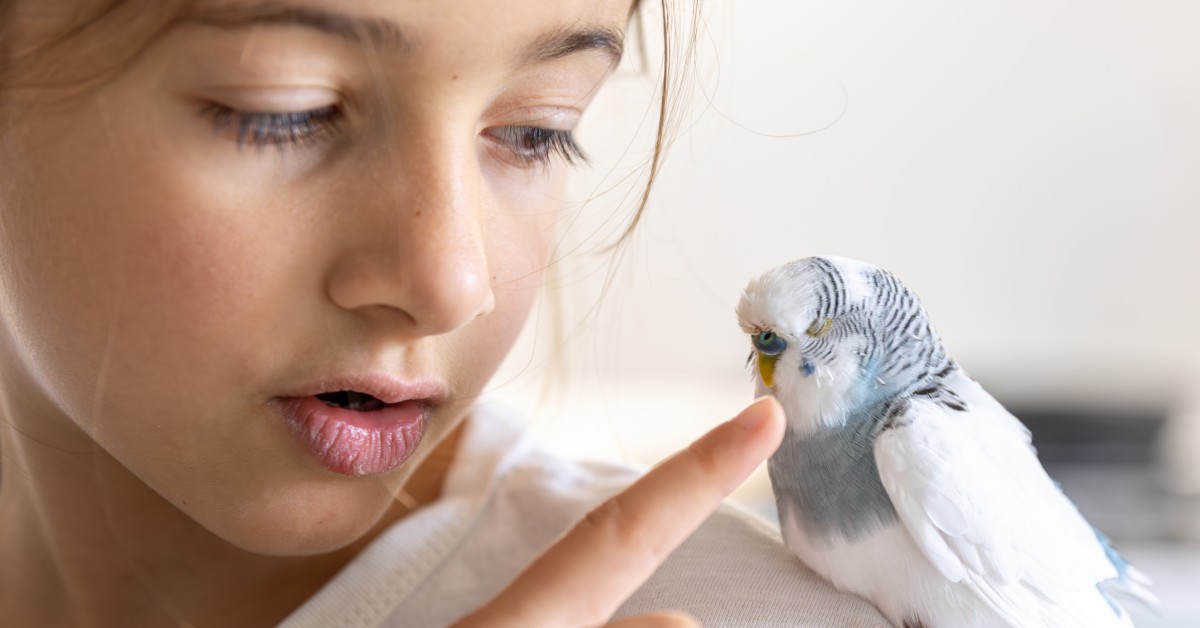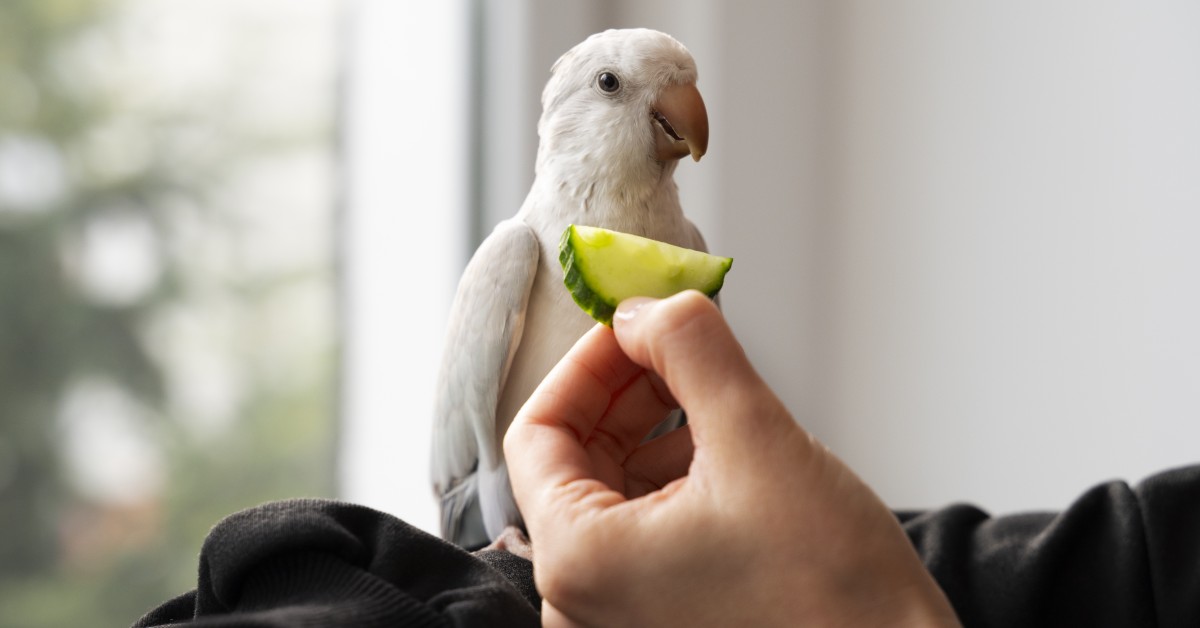Common Avian Illnesses and How to Prevent Them
Understanding avian illnesses and taking preventative steps is the key to keeping your pet bird healthy and thriving.

Caring for a pet bird can be a rewarding experience filled with cheerful chirps and playful interactions that brighten any household. However, like all pets, birds are prone to certain health concerns that require attention and proactive care. The challenge that many bird owners face is that avian illnesses tend to develop silently. Oftentimes, by the time visible symptoms appear, the bird has been unwell for quite some time. This is why prevention and early detection are absolutely essential. Review some of the most common bird health issues and the simple steps you can take to prevent them.
1. Psittacosis (Parrot Fever)
Psittacosis is one of the most well-known bird illnesses, caused by the bacteria Chlamydia psittaci. It affects not only parrots but also parakeets, cockatiels, and other pet birds. Symptoms can include lethargy, nasal discharge, loss of appetite, and respiratory problems. What makes this illness particularly concerning is that it’s zoonotic, meaning it can spread to humans.
Prevention Tips:
- Schedule regular vet checkups to detect infection early.
- Keep cages clean and disinfected.
- Quarantine new birds before introducing them to your flock.
- Avoid overcrowding, as stress weakens immunity.
2. Avian Gastric Yeast (AGY) Infection
Formally known as “megabacteria,” AGY is a fungal infection that disrupts digestion and nutrient absorption. Birds with AGY may lose weight despite eating, regurgitate food, or produce undigested seeds in their droppings. Left untreated, this condition can be fatal.
Prevention Tips:
- Provide a clean environment to limit exposure to harmful microbes.
- Feed a balanced diet, avoiding an over-reliance on seeds.
- Reduce stress, as it can weaken your bird’s natural defenses.
3. Aspergillosis
Caused by the fungus Aspergillus, this avian illness primarily affects the respiratory system. Birds breathe in fungal spores from moldy environments, damp cages, or poor-quality food. Common symptoms include labored breathing, wheezing, and reduced activity.
Prevention Tips:
- Never allow food to sit until it becomes moldy.
- Ensures cages are well-ventilated and dry.
- Replace bedding regularly to prevent fungal growth.
- Avoid dusty environments that make spores easier to inhale.
4. Polyomavirus
Polyomavirus is a highly contagious disease, most dangerous to young birds. It can cause sudden death, feather abnormalities, poor growth, or weakness. Because it spreads easily through direct contact or contaminated surfaces, it’s a serious concern for breeders and multi-bird households.
Prevention Tips:
- Vaccination is the best preventive step.
- Strict hygiene when handling multiple birds.
- Isolate sick or new birds before integrating them with others.
5. Proventricular Dilatation Disease (PDD)
Also called “macaw wasting syndrome,” this condition is linked to a virus that attacks the nervous system and digestive tract. Birds with PDD may struggle to digest food properly, regurgitate food frequently, or exhibit neurological signs such as weakness and poor coordination.
Prevention Tips:
- Unfortunately, there’s no cure, so prevention is key.
- Always purchase birds from reputable breeders with healthy stock.
- Practice strict biosecurity in multi-bird households.
6. Feather Plucking
While not always linked to an illness, feather plucking is a common behavioral issue that can indicate an underlying health problem. Causes range from boredom and stress to infections, parasites, nutritional deficiencies, and other pet bird diseases.
Prevention Tips:
- Provide mental stimulation with toys and social interaction.
- Ensure your bird’s diet is rich in vitamins, minerals, and proteins.
- Rule out medical causes with a veterinary checkup.
7. Nutritional Deficiencies
Birds fed an all-seed diet often suffer from deficiencies in vitamin A, D, E, and calcium. Poor bird nutrition can weaken the immune system, causing feather and beak problems and increasing susceptibility to infections.
Prevention Tips:
- Offer a varied diet that includes pellets, fresh fruits, and vegetables.
- Avoid processed human foods and high-fat treats.
- Provide cuttlebones or mineral blocks for calcium.
8. Mites and Lice
External parasites, such as mites and lice, can infest feathers and skin, leading to itching, restlessness, and feather damage. Some mites even burrow into the bird’s beak and feet, causing deformities if untreated.
Prevention Tips:
- Clean and sanitize cages and perches regularly.
- Avoid exposure to wild birds.
- Use veterinarian-approved treatments at the first sign of infestation.
9. Egg Binding
Egg binding occurs when a female bird is unable to pass an egg, which can be life-threatening. Symptoms include straining, sitting at the bottom of the cage, and puffed-up features. Small birds like budgies and finches are especially at risk.
Prevention Tips:
- Ensure females receive adequate calcium and vitamin D.
- Avoid excessive egg-laying by managing light exposure and providing proper enrichment.
- Seek veterinary help immediately if egg binding is suspected.
10. Respiratory Infections
Respiratory infections can stem from bacteria, viruses, fungi, or environmental irritants like smoke or strong fumes. Birds with breathing trouble, nasal discharge, or tail bobbing need urgent care.
Prevention Tips:
- Never expose birds to smoke, aerosols, or scented candles.
- Keep the cage in a well-ventilated but draft-free area.
- Address any signs of illness promptly with professional care.
Keep Your Pet Bird Healthy with Proactive Measures
Birds often mask illness as a survival instinct, so attentive owners must be proactive. Preventing bird sickness requires a balanced diet, a clean environment, and plenty of mental stimulation. Just as important, you’ll want to build a strong bond with your bird so that you can more easily notice subtle changes in behavior or appearance that could indicate a health issue. When in doubt, always consult with a vet.
Ready to start saving money on pet wellness care?
Then take a look at Mint Wellness, the pet wellness plan that provides fast reimbursement on routine pet care. Save on vaccinations, wellness exams, preventatives, dental, and more!
Learn More


